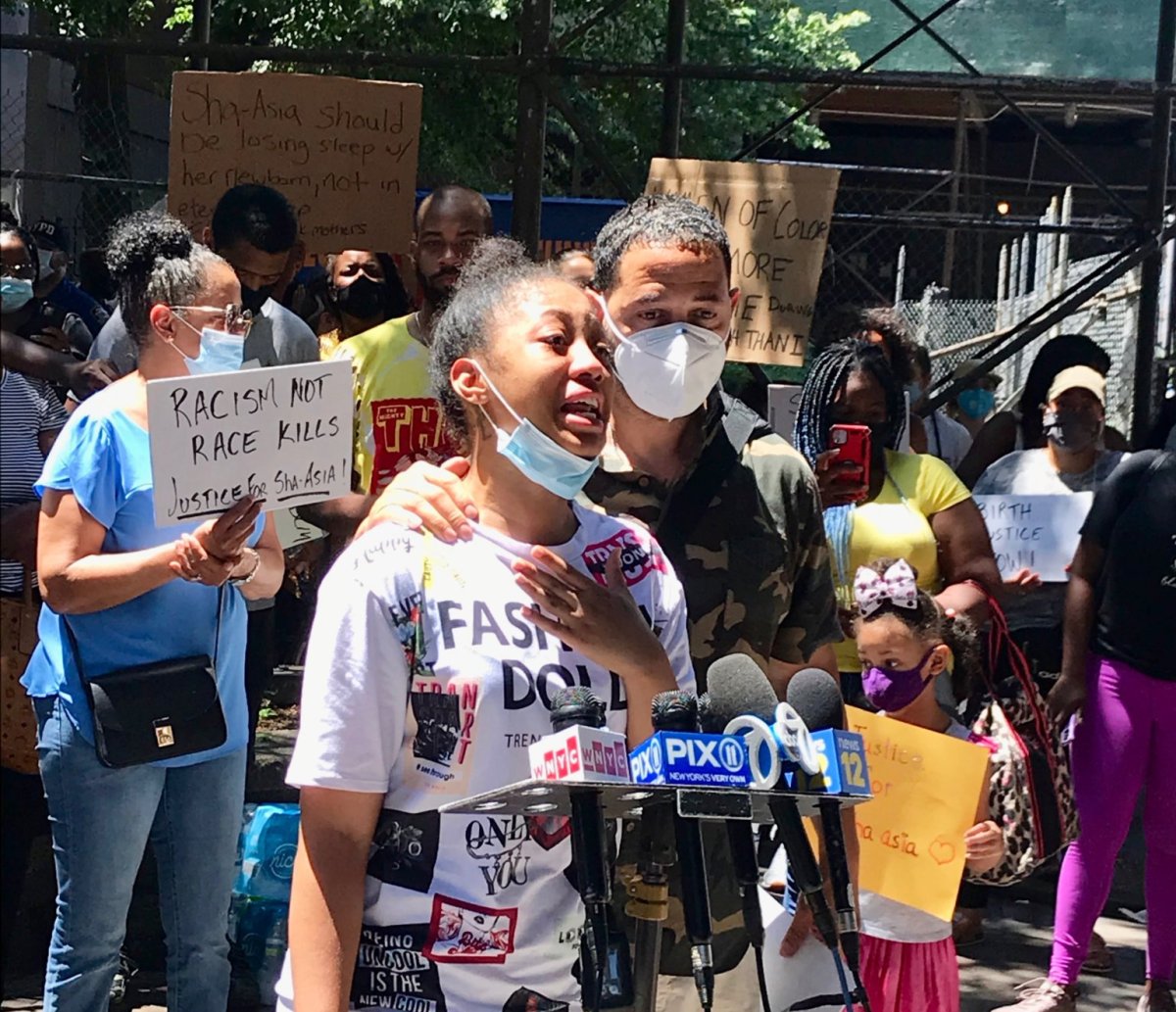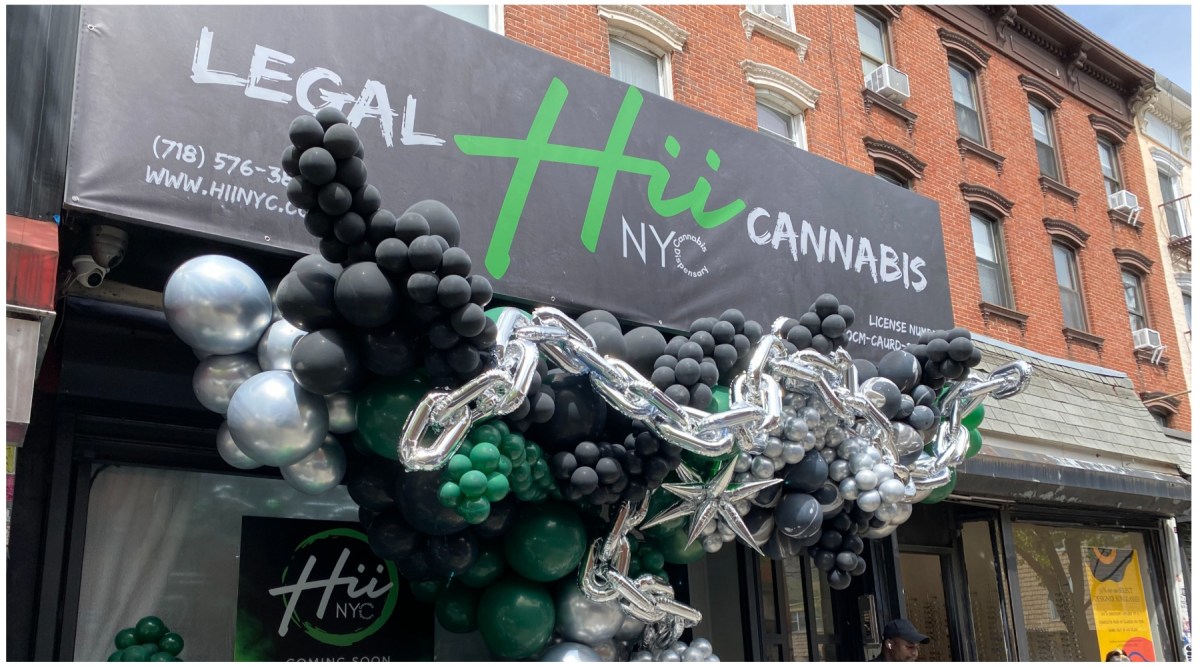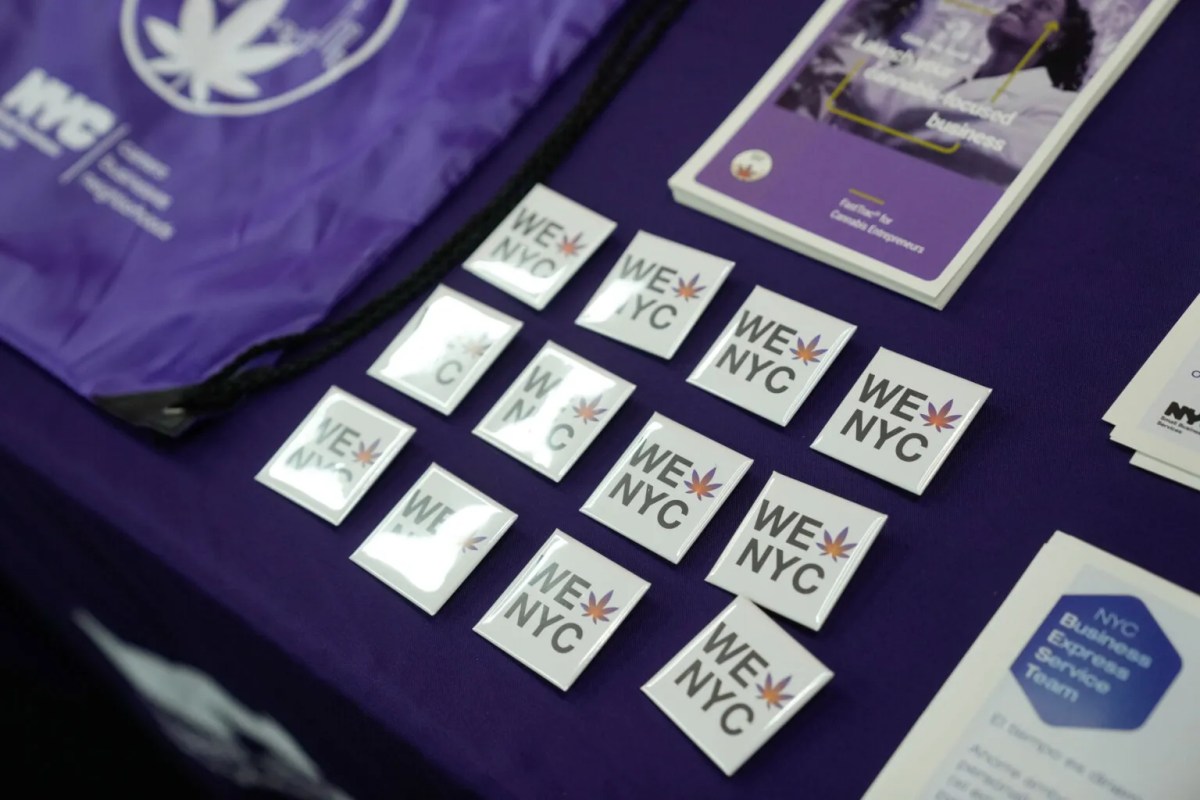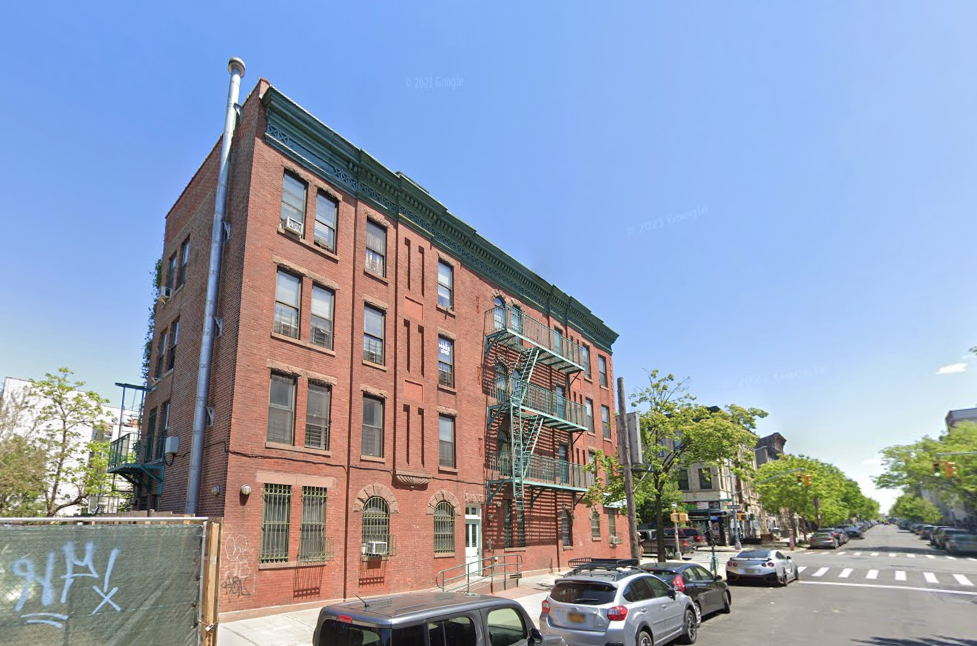Protesters and grieving family members gathered outside a Bedford-Stuyvesant hospital on Thursday to call for justice for Sha-Asia Semple, a 26-year-old Black woman who died while giving birth at the medical center on July 3.
“They killed her,” said Desiree Williams, the mother of Semple’s boyfriend, at the protest. “They know they killed her. My son is broken down.”
On July 2, Semple and her partner visited Woodhull Medical Center, a city-run hospital on Flushing Avenue, because they were concerned about Semple’s low blood pressure. Semple went into labor the following day, and shortly before midnight on July 3, doctors escorted Semple’s boyfriend out of the room and gave Semple an epidural despite her protests, her boyfriend’s family said.
“They were giving her too much medication. She said she didn’t want [the epidural], and they forced it on her,” said Jasmin López, a close friend of Semple’s and the sister of her boyfriend.
Almost immediately, Semple’s boyfriend, Juwan López, saw doctors rushing Semple to another room for an emergency caesarean section, López’s family said. The baby survived, but Semple died of cardiac arrest, Jasmin said.
“She was 26 years old. How does your heart stop at 26?” said Jasmin, adding that Semple had a healthy pregnancy and no pre-existing conditions. “I lost my friend, I lost my sister.”
Jasmin said that Semple’s family conducted an independent autopsy, which confirmed that Semple died from the epidural.
“From the coroner, the answer was the epidural killed her,” Jasmin said.
Heart attacks caused by epidurals are very rare, and are usually caused by a local anesthetic overdose or adverse internal reaction, according to a 2017 study.
News of Semple’s death and Thursday’s protest spread on social media, drawing more than 100 protesters to the hospital’s entrance at Broadway and Flushing avenues for the afternoon demonstration. Attendees held signs saying “Woodhull has blood on their hands” and “Black births need Black doulas,” while the family addressed the crowd.
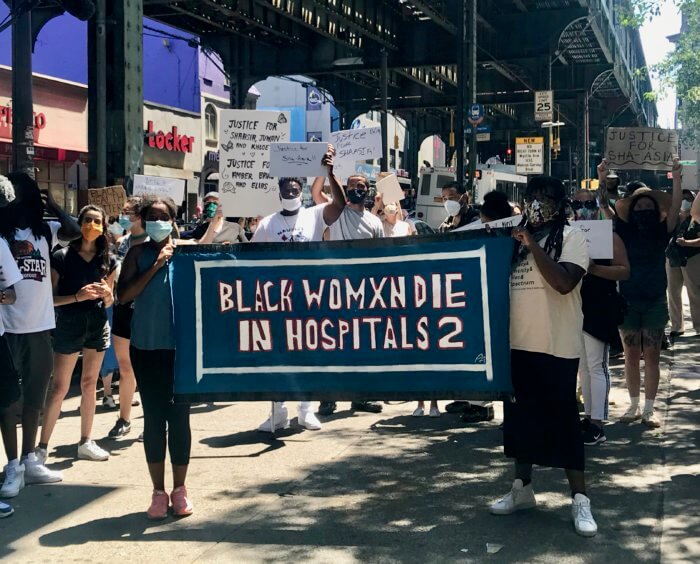
“If you knew [Sha-Asia], you loved her,” said José López, Juman’s father, who alleges that the hospital called Sha-Asia’s family and admitted that their actions caused her death. “The hospital admitted it was their fault. They called the father on the mother’s side, and they blamed it on themselves.”
José said that his son had planned to propose to Semple this Tuesday, and that the couple, who had been together for two years, had just moved into their own apartment in Canarsie.
“They were in Canarsie one month in their apartment and then this happens,” he said.
Other speakers at the protest underscored how frequently Black women die during childbirth. According to the Centers for Disease Control and Prevention, Black women are three to four times more likely than white women to die from pregnancy complications, and research suggests that half of pregnancy-related deaths are preventable.
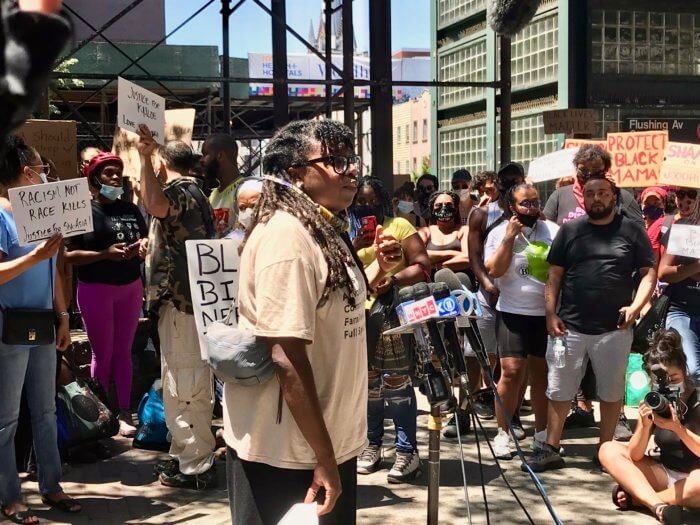
One doula at the protest explained that hospitals and medical providers often neglect Black women’s health by doubting their claims and viewing them as a threat.
“I’ve seen people criminalized at bedside. I’ve seen other systems like child protective services and others used as a tool to get people to comply with medical procedures,” said Chanel Porchia-Albert. “Some of it centers around delayed care or no care or not believing a person when they express something.”
The problems within the medical system reach far beyond Woodhull Medical Center, she said, and can only be resolved with a fundamental overhaul of the system that increase accountability and give patients more advocates.
“There’s still education for nurses, even for midwives, on a colonial system — on a racist system — that doesn’t teach them what it means to care for different people,” she said. “Right now, it’s perpetuating a business, and we’re not commodities.”
A spokesperson for NYC Health + Hospitals, the city-run medical network that operates Woodhull, said that the hospital is conducting an internal in-depth quality review of the incident, and that the hospital is committed to understanding the reasons why Black patients die more frequently during childbirth.
“The City’s public health system recognizes the disproportionate increased burden that black and brown patients face during childbirth,” NYC Health + Hospitals said in the statement. “We are devoted to understanding the causes, and are committed to addressing this unacceptable disparity.”
This story first appeared on brooklynpaper.com.



